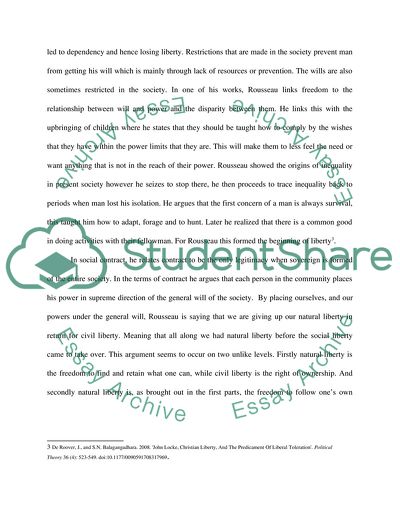Cite this document
(Rousseau's Concept of Liberty Essay Example | Topics and Well Written Essays - 1500 words, n.d.)
Rousseau's Concept of Liberty Essay Example | Topics and Well Written Essays - 1500 words. https://studentshare.org/social-science/1862789-modern-political-theory
Rousseau's Concept of Liberty Essay Example | Topics and Well Written Essays - 1500 words. https://studentshare.org/social-science/1862789-modern-political-theory
(Rousseau'S Concept of Liberty Essay Example | Topics and Well Written Essays - 1500 Words)
Rousseau'S Concept of Liberty Essay Example | Topics and Well Written Essays - 1500 Words. https://studentshare.org/social-science/1862789-modern-political-theory.
Rousseau'S Concept of Liberty Essay Example | Topics and Well Written Essays - 1500 Words. https://studentshare.org/social-science/1862789-modern-political-theory.
“Rousseau'S Concept of Liberty Essay Example | Topics and Well Written Essays - 1500 Words”. https://studentshare.org/social-science/1862789-modern-political-theory.


